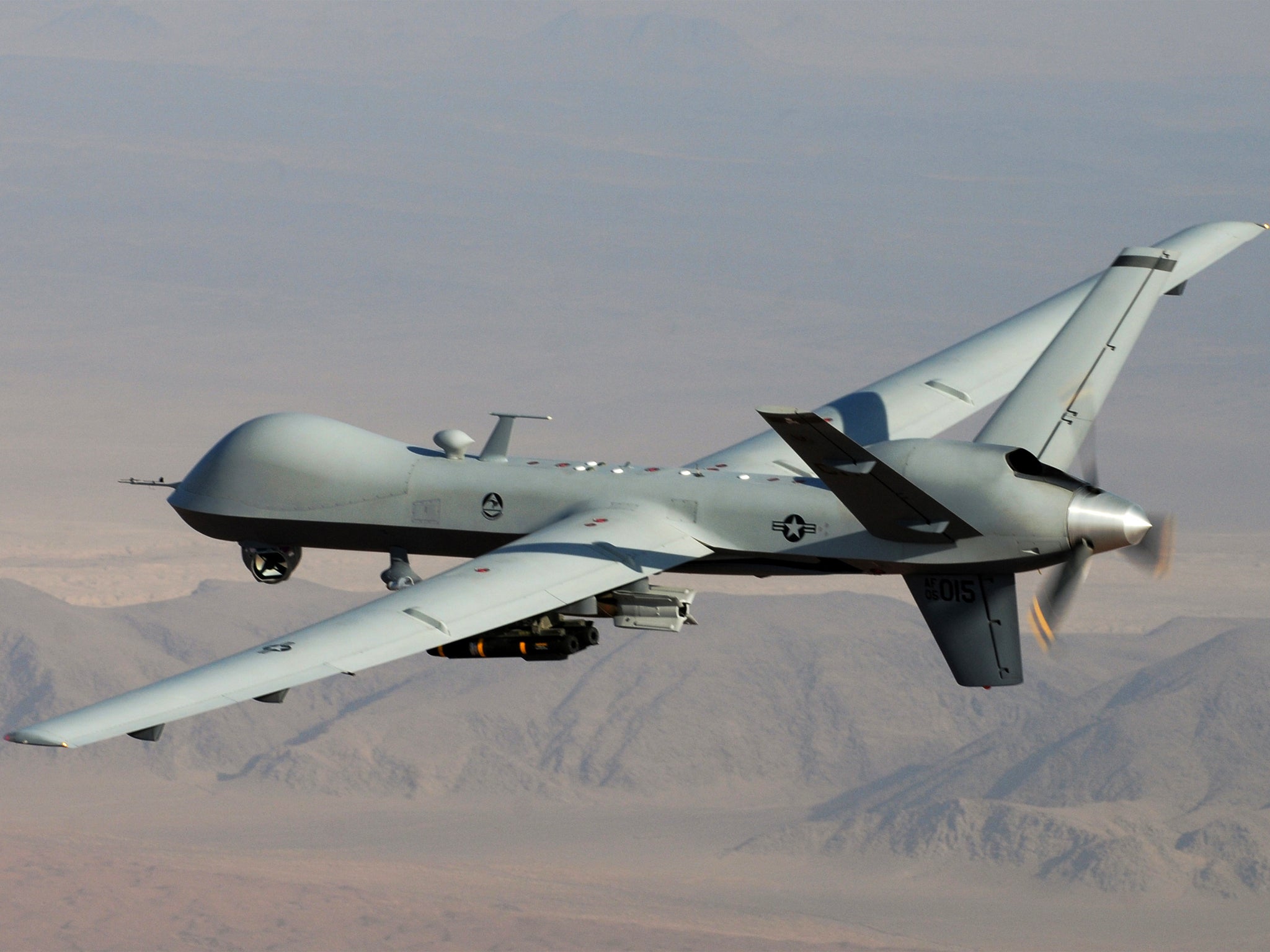Amnesty International warns US drone strikes in Pakistan could be classed as 'war crimes'
Report by the human rights group found that drone strikes may have resulted in unlawful killings

Your support helps us to tell the story
From reproductive rights to climate change to Big Tech, The Independent is on the ground when the story is developing. Whether it's investigating the financials of Elon Musk's pro-Trump PAC or producing our latest documentary, 'The A Word', which shines a light on the American women fighting for reproductive rights, we know how important it is to parse out the facts from the messaging.
At such a critical moment in US history, we need reporters on the ground. Your donation allows us to keep sending journalists to speak to both sides of the story.
The Independent is trusted by Americans across the entire political spectrum. And unlike many other quality news outlets, we choose not to lock Americans out of our reporting and analysis with paywalls. We believe quality journalism should be available to everyone, paid for by those who can afford it.
Your support makes all the difference.Human rights group Amnesty International is calling on the US to investigate civilian deaths from drone strikes, amid concerns that the attacks could have resulted in unlawful killings which may constitute war crimes.
The group said they had examined nine out of 45 recent strikes by US drones and found that a number of victims who died in the attacks were unarmed.
The report, entitled Will I be Next? US drone strikes in Pakistan centred on the controversial death of 68-year-old Mamana Bibi, who was allegedly killed by a US drone in October 2012 while she was picking vegetables with her grandchildren in north-west Pakistan.
The attack, which left three of her grandchildren injured, took place in the North Waziristen tribal area, a region bordering Afghanistan. Nabeela, the woman’s eight year-old granddaughter survived the strike but said that whenever she hears drones fly overhead now she wonders “will I be next?”
The US government has refused to provide even basic details over the strikes, the report says, leaving the human rights group unable to reach “firm conclusions” on the status of the deaths of Mamana Bibi and the 18 laborers.
However, it concluded that “based on its review of incidents over the last two years, Amnesty International is seriously concerned that these and other strikes have resulted in unlawful killings that may constitute extrajudicial executions or war crimes”.
Amnesty called on the US to comply with its obligations under international law by investigating the killings documented in the report and providing victims with “full reparation.”
An even deadlier incident occurred in July when witnesses said a volley of missiles hit a tent where a group of men had gathered for an evening meal after work, according to the report. A second struck those who came to help the wounded, one of a number of attacks that have hit rescuers, it said.
Witnesses and relatives said a total of 18 male labourers with no links to militant groups died, according to Amnesty. Pakistani intelligence officials at the time identified the dead as suspected militants.
Their report comes after a UN human rights investigator last week called for America to release death toll figures. Ben Emmerson, UN special rapporteur on human rights and counterterrorism said at least 330 drone strikes were on record in the Federally Administered Tribal Areas since 2004, killing over two thousand people, of which 400 were civilians.
"We cannot find any justification for these killings. There are genuine threats to the USA and its allies in the region, and drone strikes may be lawful in some circumstances," said Mustafa Qadri, Amnesty International's Pakistan researcher. "But it is hard to believe that a group of labourers, or an elderly woman surrounded by her grandchildren, were endangering anyone at all, let alone posing an imminent threat to the United States."
Join our commenting forum
Join thought-provoking conversations, follow other Independent readers and see their replies
Comments